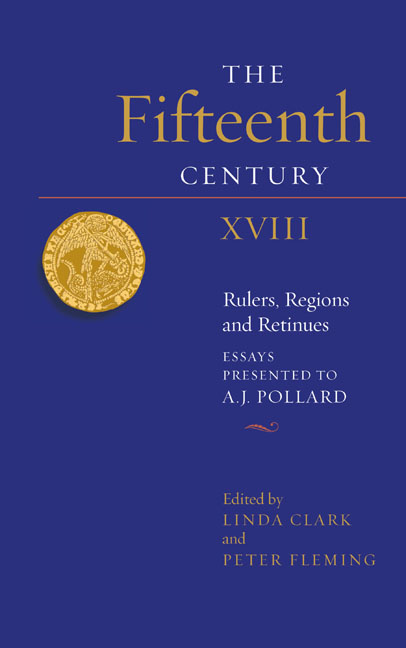A Failure in Foresight: the Lancastrian Kings and the Lancastrian Dukes
Published online by Cambridge University Press: 24 November 2020
Summary
The Lancastrian kings reigned for only sixty-two years. The ousting of the Lancastrian dynasty is usually attributed to the defects of Henry VI and to the disasters of the 1450s, but also relevant is the withering and near expiry of the dynasty itself. There were no longer Lancastrian dukes to take precedence over Richard, duke of York. That the house of Lancaster had dwindled to two lives in 1435 and to one only from 1447 to 1453 was due to the failures of Henry IV and Henry V. Only Henry VI himself and his son Edward remained in 1453–71.
Back in 1399, when Henry IV usurped the throne, he had three half-brothers and four sons who shared ‘loyalty to a common ancestry, and therefore to the dynasty of Lancaster’. They were ‘a factor which Henry could always count upon’, wrote Christopher Allmand. Henry's younger sons and the cadet house of Beaufort saw themselves as Lancastrians and served the Lancastrian kings for as long as their line lasted. ‘His dynasty’, wrote Ian Mortimer, ‘was as safe as he could reasonably make it.’ The fall of the house of Lancaster was in part a failure to reproduce. This in turn was due less to issues of fertility than to failures in forward planning. If Henry IV with four sons and Henry V with three brothers saw no urgency in reproduction – strangely in view of contemporary life expectancy – the absence of the grandsons necessary to populate the next generation of the royal house was a defect in foresight. The demise of the house of Lancaster was anticipated by its failure to breed in its first twenty years. This essay considers how late medieval kings provided for their sons as context for the failure of the Lancastrian dynasty. In this respect the Lancastrians differed radically from other late medieval English kings, both earlier and later, and weakened their dynasty in consequence.
English kings inherited their nobility and could not shape it at will. All kings had siblings, sons or favourites whom they wished to advance and whom they wanted to make peers of the realm. Historians such as the present author have often supposed that kings could make peers as and when they desired, but this was not the case.
- Type
- Chapter
- Information
- The Fifteenth Century XVIIIRulers, Regions and Retinues. Essays presented to A.J. Pollard, pp. 27 - 38Publisher: Boydell & BrewerPrint publication year: 2020

